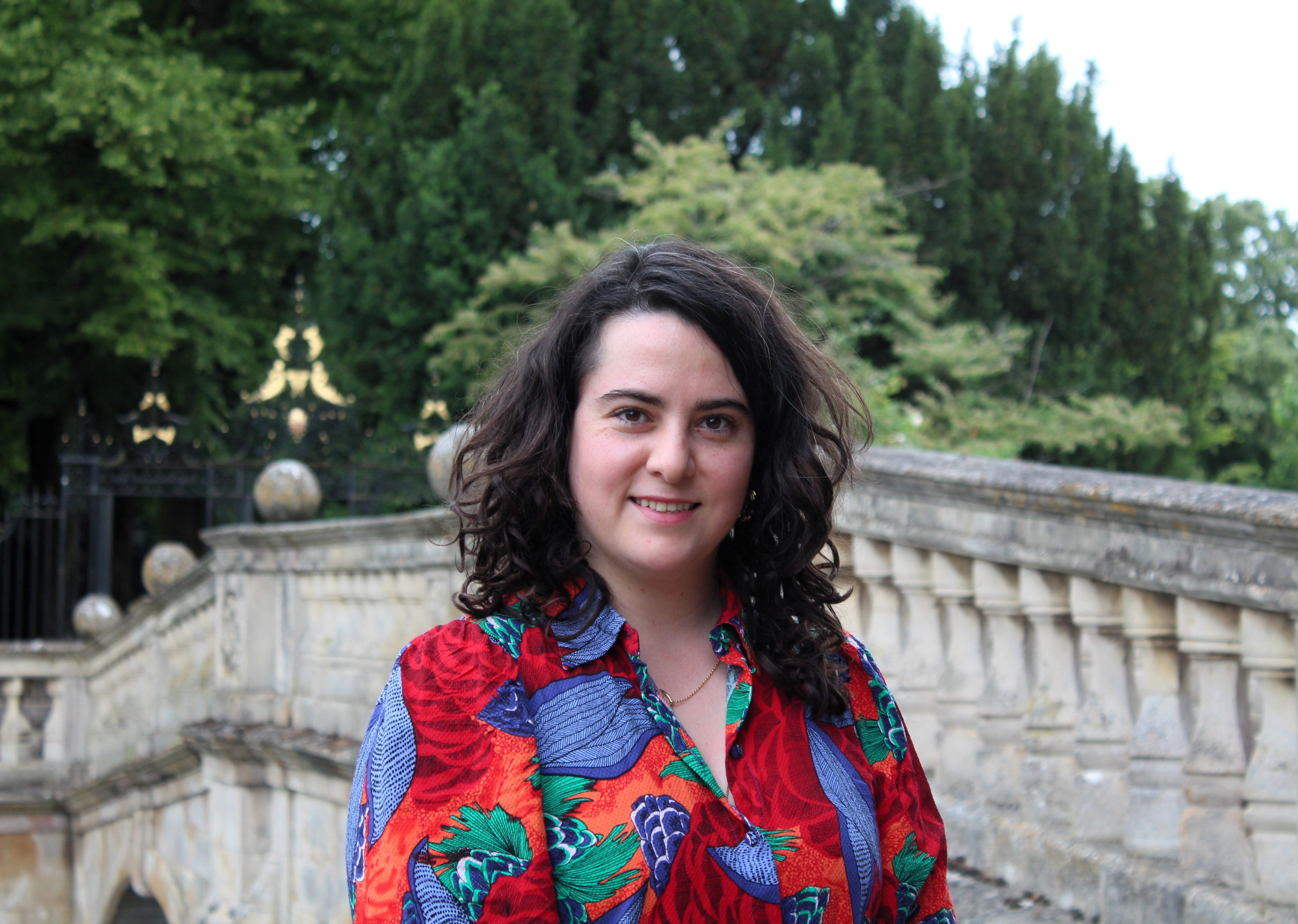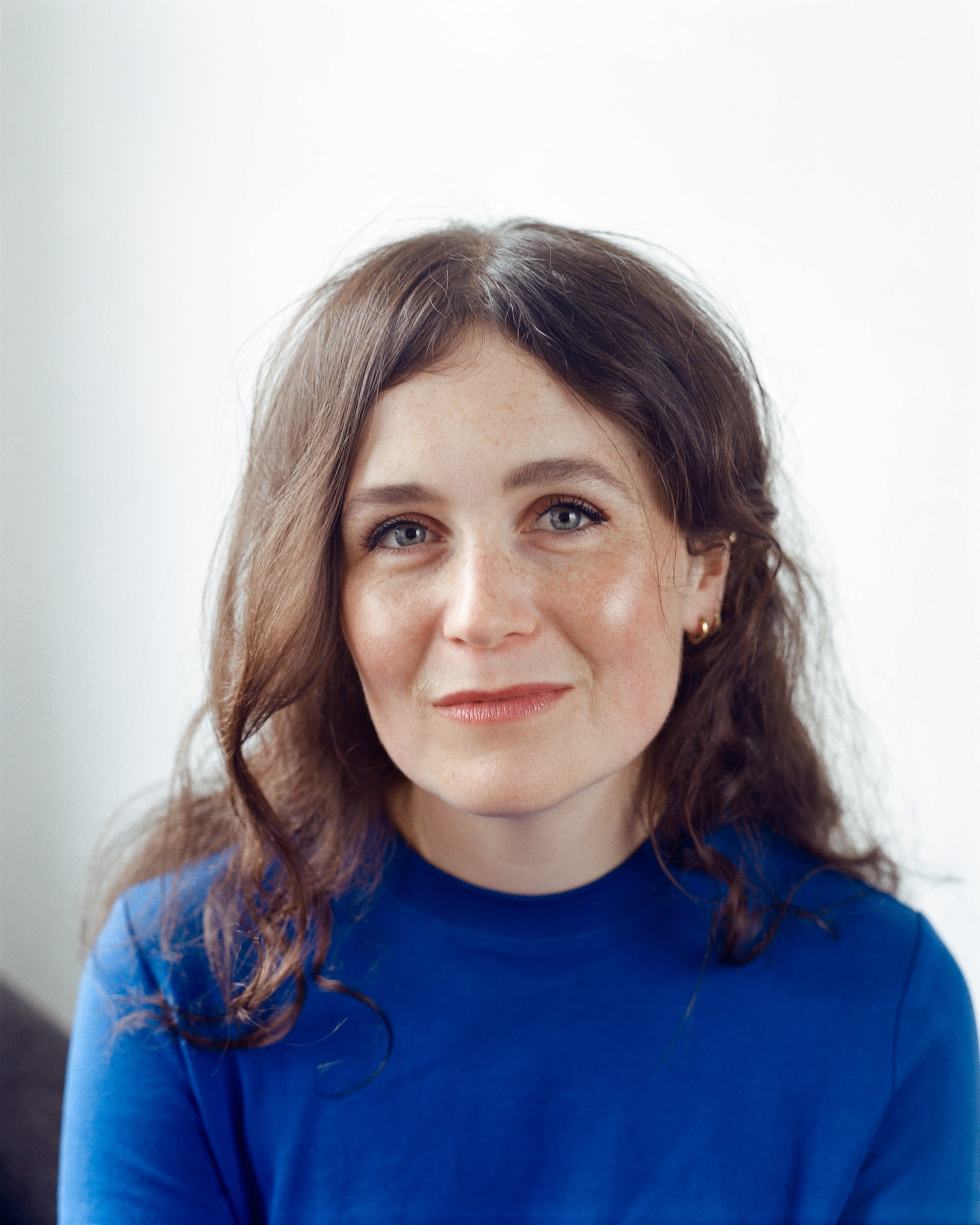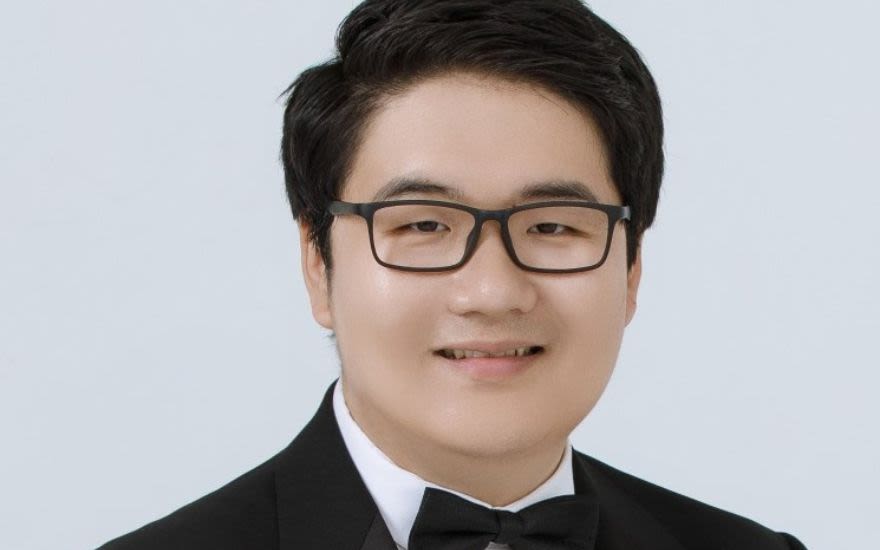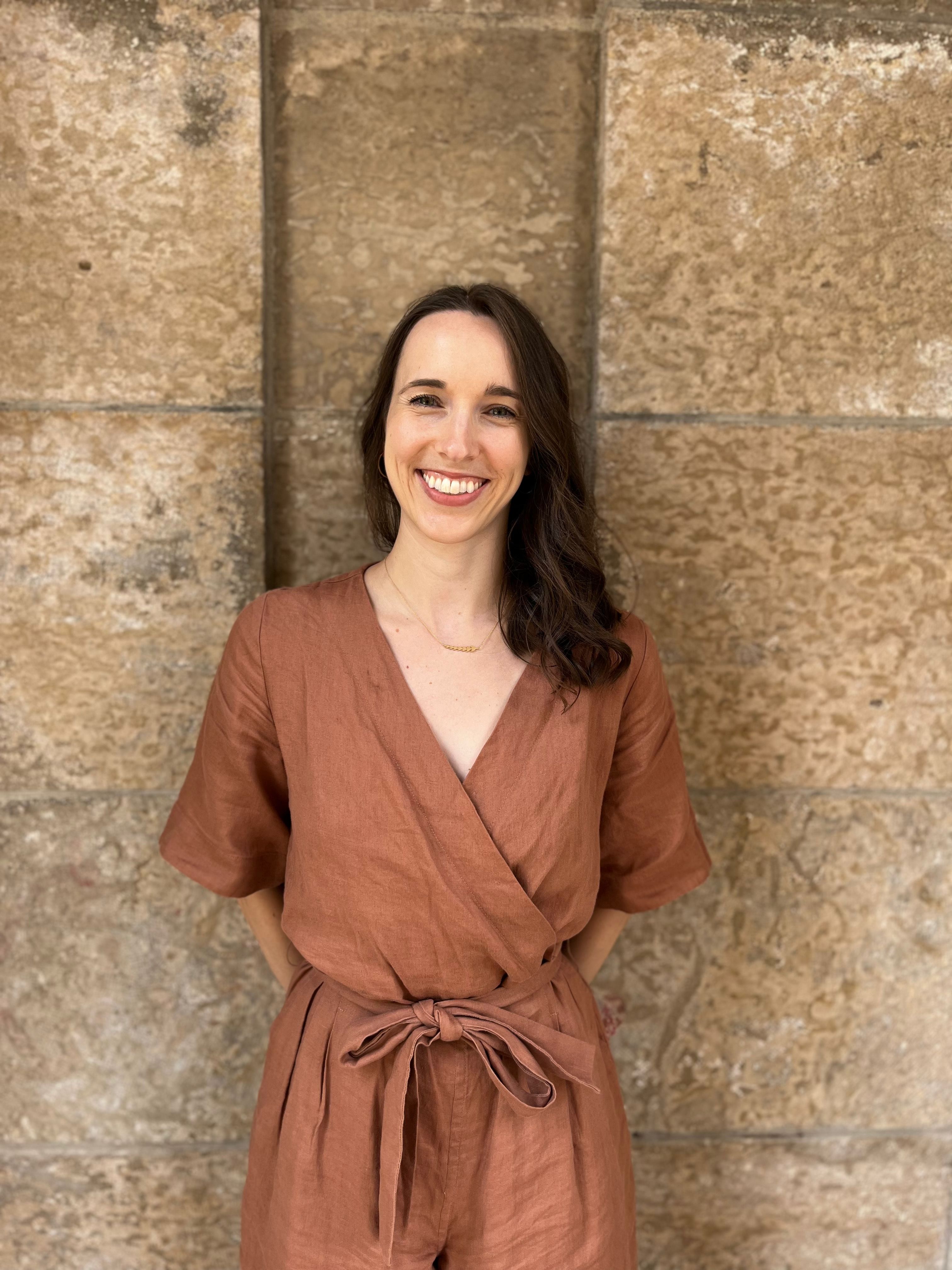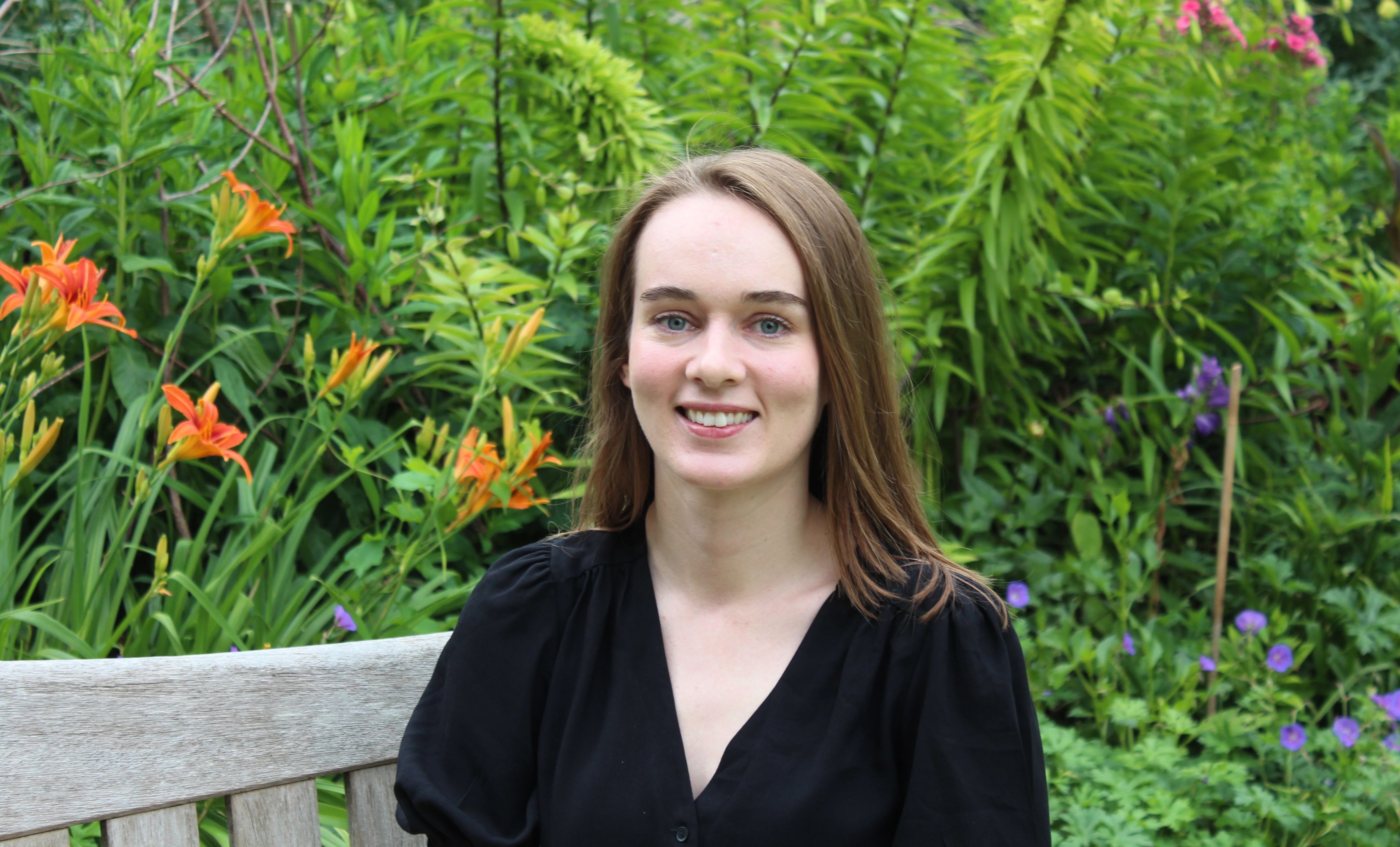Our Newest Fellows
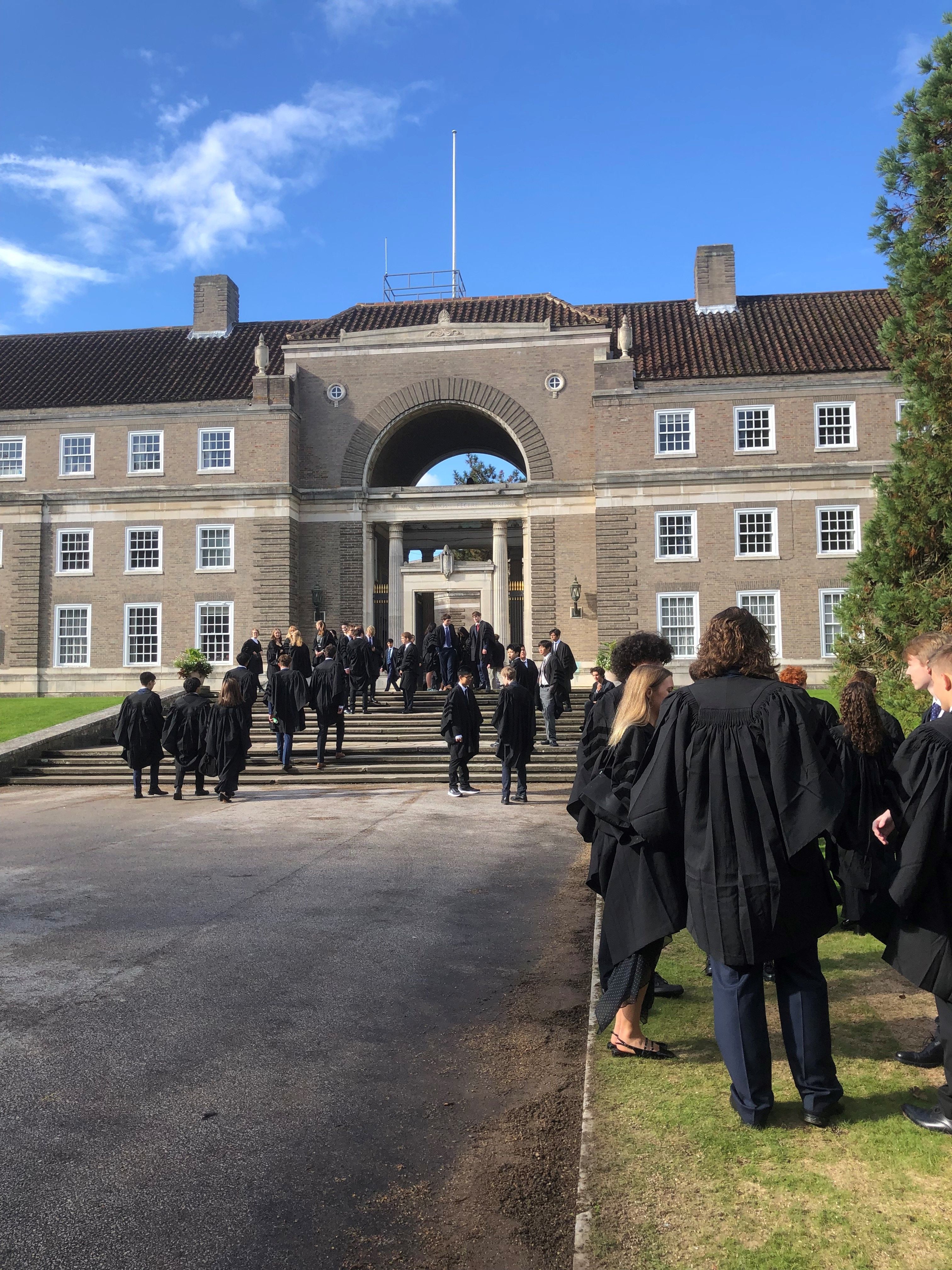
Macarena Arenas
I joined Clare as the Denman Baynes Senior Student in October 2022 and became a Research Fellow in maths in October 2023. I am also a member of the Department of Pure Maths and Mathematical Statistics (DPMMS). My first degree was a Bachelor of Science in mathematics, which I completed at the National Autonomous University of Mexico (UNAM). After that, I completed a Master’s in mathematics at McGill University. I moved to Cambridge in 2020 to pursue my PhD in Newnham College and the DPMMS.
I work in Geometric Group Theory – a field of Mathematics that studies groups (algebraic structures that formalise the concept of symmetry), and the geometric and topological spaces on which they act (the ways in which these algebraic structures can be realised as the symmetries of specific objects). Thus, I use geometry to understand groups, and algebra to understand geometry. While this is the guiding principle, the tools and techniques of many other areas of Maths enrich and permeate the subject, making it an ever-growing domain.
My research, specifically, concerns hyperbolic and non-positively curved groups and spaces, non-positively curved cube complexes, and the geometric topology of curves and surfaces; one stream of my work focuses on quantifying geometric and algebraic properties of groups and their topological counterparts, the other on producing examples and structural results.
In addition to my research, I supervise undergraduate students for Clare, I have lectured a Part III course for the DPMMS, and I co-organise the department’s Geometric Group Theory weekly seminar.
I am currently starting a new project on Russia’s great but largely forgotten nineteenth-century women novelists, especially Nadezhda Khvoshchinskaya and Evgenia Tur. Khvoshchinskaya was one of the most well respected and highly paid authors in Russia in the second half of the nineteenth century, but she disappeared from literary history during the Soviet period. I am working with colleagues to restore her legacy and am delighted to be hosting a conference at Clare in April 2023 in honour of her 200th jubilee.
Helen Charman
I joined Clare in Michaelmas 2023 as a Fellow and College Teaching Officer in English. I undertook my BA and MPhil at Emmanuel College before completing my PhD at Trinity Hall in 2019, and I spent three years teaching at Durham University before returning to Cambridge, where it has been a real pleasure getting to know the Clare community.
My research lies at the intersection between literary studies, social history, and psychoanalysis: I use the tools of close reading to ask what texts can tell us about both their historical and their psychological contexts. My first book, Mother State: a political history of motherhood (Allen Lane, 2024) makes the case that mothering is an explicitly political act by constructing a new narrative of public maternal life in the UK from 1970 to the present.
I’m currently working on two new projects: the first is another public-facing book, Hothouse Freaks, about the psychosocial history of the governess in nineteenth- and early-twentieth-century literature and culture. The second is an academic monograph, Deep Down Below the Memory, that considers the relationship between the psychoanalytic case history and narrative style, from George Eliot’s influence on Sigmund Freud to Lydia Davis’s relationship to Melanie Klein. I am committed to working in public as well as academic contexts, and have collaborated most recently with the Wellcome Collection, Glasgow International Festival, and Edinburgh International Book Festival.
As well as supervising students in English, I’m looking forward to taking up two new roles in Michaelmas 2024: Part II Director of Studies, and an undergraduate tutor.
Burigede Liu
I joined Clare College as a Fellow in Lent Term 2024, following my PhD at Cambridge and postdoctoral research at ETH Zurich and Caltech. Since 2021, I have been the Granta Design Assistant Professor in the Department of Engineering at Cambridge.
My research sits at the intersection of applied mathematics, machine learning, and solid mechanics. I focus on developing methods to solve partial differential equations more efficiently, using machine learning and quantum computing. I am also interested in understanding, modeling, and controlling complex material systems under extreme conditions, combining data-driven techniques, solid mechanics, and uncertainty quantification to achieve this.
At Cambridge, I teach the Finite Element Method, a powerful numerical tool for solving partial differential equations on arbitrary domains. This year, I introduced a new course, Data-Driven and Learning-Based Methods in Mechanics and Materials, one of the first to integrate machine learning with solid mechanics. I also enjoy supervising Clare undergraduates for the Engineering Tripos and will serve as an undergraduate tutor this year. Since joining Clare, I’ve greatly enjoyed the warm, welcoming atmosphere and the wonderful community here.
Jessica Plant
I joined Clare in 2023 after earning my PhD in the History of Art and Archaeology at Cornell University. Before that I received MAs from Cornell in the History of Art and Archaeology (2019) and Archaeology (2017), and a BA in Classical Civilizations and Near Eastern Studies and Art History from the University of Minnesota (2015). As a JRF I am affiliated with the Faculty of Classics and Archaeology, and I am a Postdoctoral Fellow at the McDonald Institute for Archaeological Research.
I am an expert on the art and archaeology of the ancient Mediterranean with a focus on Roman and Late Antiquity. My dissertation research focused on decorative plaster (or stucco). Omnipresent in the Roman world, stucco is largely an ignored medium in classical archaeological studies. To fill this lacuna, I am developing my dissertation into a monograph which will offer the first synthetic history of stucco in Roman antiquity, broadly construed.
My current research examines the intersections between the way ancient buildings looked (surfaces) and the forces (people, materials, knowledge, and socioeconomics) which created them. By focusing on vernacular material culture, I examine how particular crafting practices created new interfaces through which people built and understood their worlds, recentring people and materials traditionally positioned outside of the classical canon.
My work at Clare is complemented by my archaeological fieldwork. Most recently, I supervised a group of international students at the Marzuolo Archaeological Project (Tuscany), where our excavations shed light on the activities of local craftspeople in the Roman period.
Kate Tilson
I grew up in the hilly, coastal city of Dunedin in the South Island of Aotearoa New Zealand, where I also completed my undergraduate studies at the University of Otago. After completing my PhD in History at Murray Edwards College, I joined Clare as a Junior Research Fellow in October 2023. I am very grateful for the warm welcome I have received from everyone in the college. It has been especially pleasing to join the wonderful team of historians!
I am a historian of nineteenth-century Britain and the South Pacific, with a growing interest in the eighteenth century. My work explores histories of religion, empire, medicine and print culture. In addition to working with printed texts, I spend a lot of time with missionary archival material, reading the diaries and correspondence of the evangelical missionaries who journeyed to the South Pacific in the early nineteenth century. Often, these texts contradict the printed propaganda of missionaries societies – and I am interested in what these contradictions reveal about emerging information networks between the Pacific and Britain. Building on this work, I am currently exploring the history of evangelical print culture and shifting conceptions of childhood in the eighteenth and nineteenth centuries. With colleagues in History at Cambridge, I am excited to host a conference at Clare on missionary source material and knowledge production in July of 2025.

